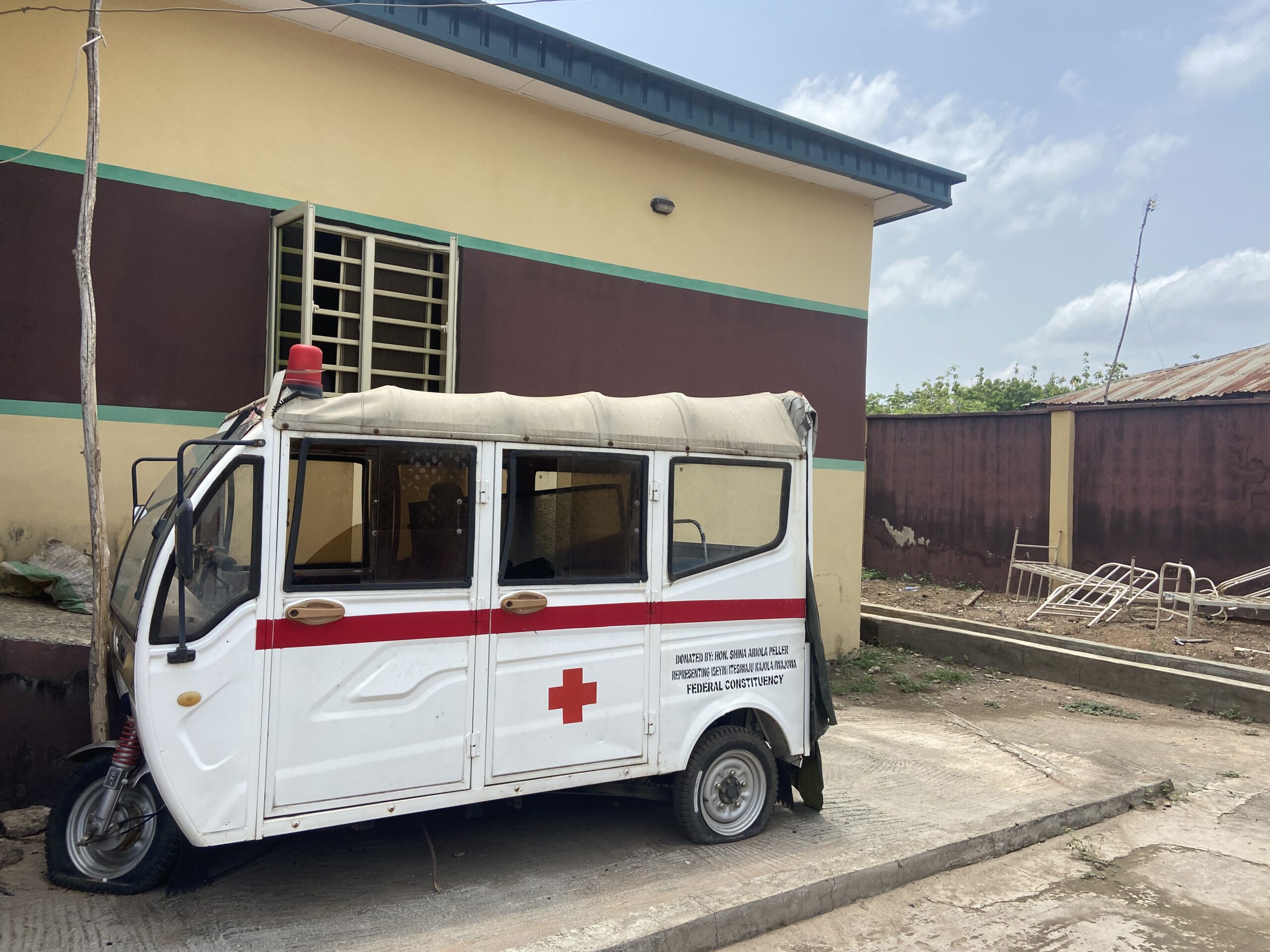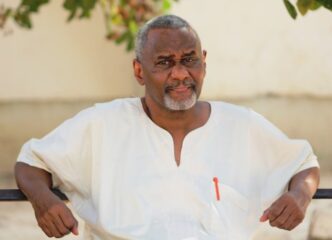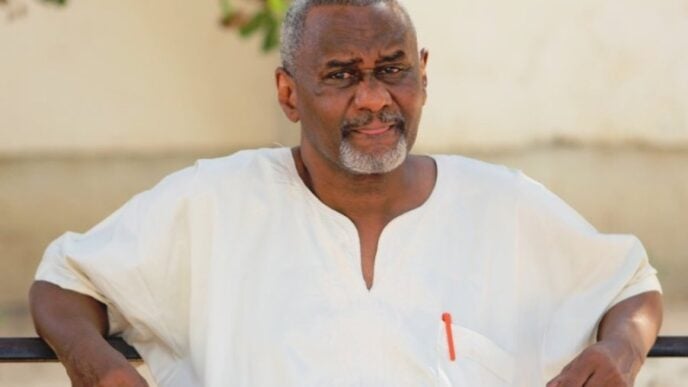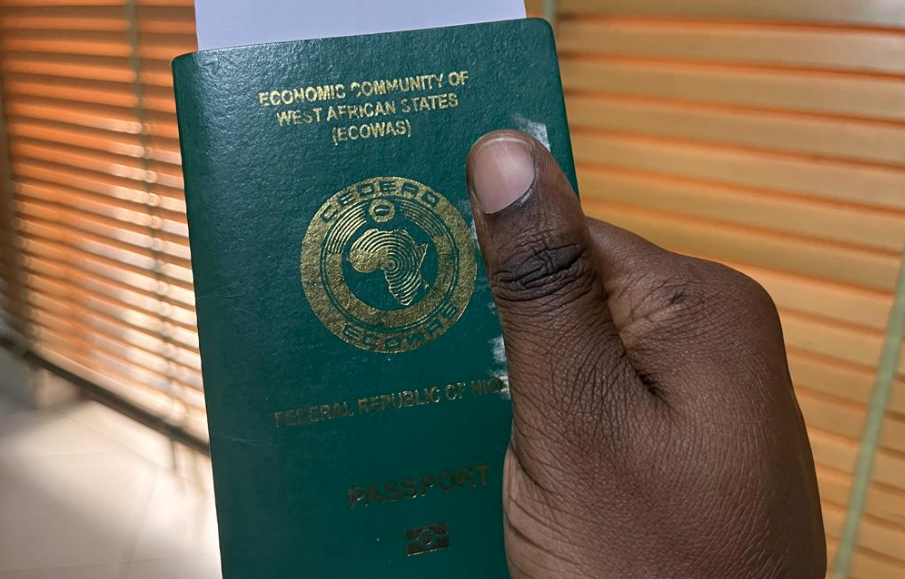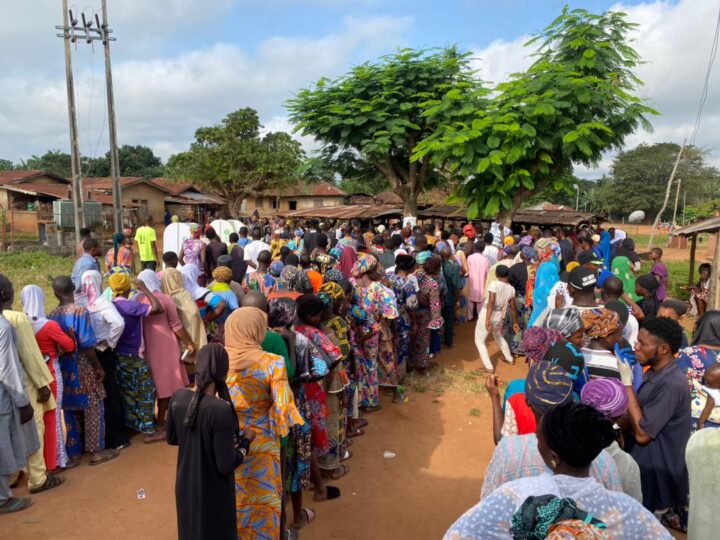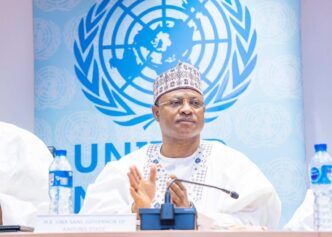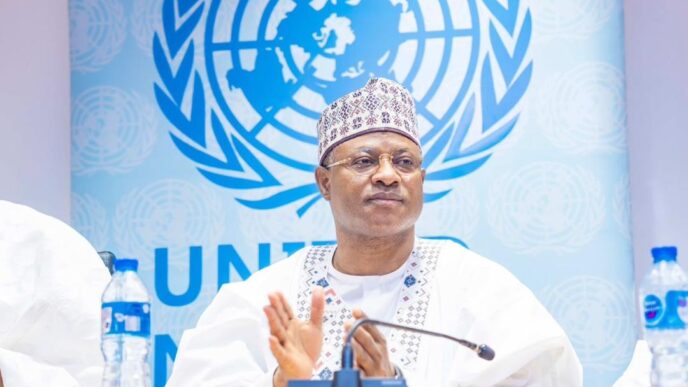A broken ambulance parked in front of the primary healthcare in Ipapo community, Oyo state
BY OKEOGBHENE ABOBISE
The first time I saw my mother cry bitterly, I was a child. She picked me up from the school parking lot, eyes bloodshot, barely able to speak. I was confused but could feel her pain deeply. I would later find out that one of her best friends, who had been sick, had passed due to complications from HIV. The mode of transmission? A blood transfusion from a surgery performed with untested blood.
This was back in the ’90s. Did the family ever get justice? No—this is Nigeria. But I digress. That’s a story for another day.
Seeing your parent that broken does something to you. For me, it sparked my curiosity about a disease that, at the time, was considered a death sentence and made me want to do something about it. It also gave me a different understanding of modes of transmission, challenging the more popular assumption that it was only transmitted sexually. I would go on to volunteer as a peer educator for HIV/AIDS in secondary school.
Ironically, the first job I landed when I moved back home post-graduation, with a degree in epidemiology, was in a private healthcare consultancy. The project? PEPFAR-funded.
Advertisement
And now, PEPFAR is gone. Or should I say, on pause?
Passive observation of the comments on social media around this recent development reveals how truly ignorant most Nigerians are about the disease burden, how much funding comes into the healthcare space via donor and development agencies, and—despite systemic inefficiencies and corruption—just how many people are dependent on that funding for survival.
Beyond the HIV program, other health initiatives will be affected—malaria, TB, and more. Let me put it this way: if all international funding were pulled out of Nigeria’s healthcare system, millions would perish. This level of dependence is criminal.
Advertisement
What’s the pipeline from research to actualized practice? Consequential local research is nearly nonexistent. Where does the money go? Most of the funding for research and development comes from foreign donors or development agencies. But where does it all go? I couldn’t tell you.
Just for fun, try looking up how many clinical trials or ongoing R&D projects for vaccine development Nigeria had in the previous year. I’ll give you a hint: the range is 0-5, and the upper limit is me being generous. You could also try finding out how many healthcare consumables are locally produced and sourced. In a country with an estimated population of over 200 million, the numbers tell the story better than I ever could. Certainly, it reflects the government’s lack of intention to move beyond being forever dependents.
I won’t go into the quid pro quo of it all or pretend there’s no benefit for the countries funding these development agencies—that’s not the focus today. I also won’t go into the losses that will be incurred by foreign pharmaceutical companies and the general supply chain shock. Again, not the focus.
The word is introspection.
Advertisement
Here is the reality: the average Nigerian cannot afford their diagnosis and treatment unsubsidized. Millions will die. Many service providers within the sector will lose their jobs. Running programs costs money. Does an inordinate amount of that go into consultancy contracts and logistics? Yes—much like every intervention program in every sector, it does. Are there inefficiencies and corruption within the system? Yes. Do a lot of patients get what they need through these programs? Yes.
My overall take—we’ve had more than enough time to get our act together. From manufacturing consumables like syringes and test kits to drug research and production, there has been nothing stopping the country from doing so, except sheer laziness, a lack of political will, and corruption.
I cannot, in good conscience, as someone who has worked in this space, claim that the funding has been properly managed or that the Nigerian government has pulled its own weight and properly utilized the helping hand it has received for over two decades.
Will the effect of PEPFAR’s suspension be devastating? From an economic, social, and human capital perspective? Yes. But alas, that is the cost of lazy overdependence.
Advertisement
There are things that can be done—things that should have been done. We don’t always need to learn the hard way. People need to get angry enough, affected enough, to hold the government accountable and direct their ire in the right direction. Introspection is key.
Moral of the story: the aim of development projects should be to actually develop. You cannot be a forever work in progress just to be barely functional. If foreign aid is always guaranteed—or, as a friend called it, an unending flow of ‘free’ money in a zero-accountability country—there’s absolutely no incentive to get any real work done.
Advertisement
Much like the national budget, year after year…same old projects and bigger budgets under a different name with no sustainable outcomes or structures.
This era has to end.
Advertisement
But here we are.
Do I expect this to actually wake up those in charge to their responsibilities? Not really. Just another day in a forever developing country.
Advertisement
A travesty.
Views expressed by contributors are strictly personal and not of TheCable.
